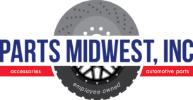Moving into the year, we’ve faced many big unknowns, and one area seems to be feeling the heat more than others. The auto industry is currently waiting to see how the future will unfold. As we wait, many wonder if they should be proactive, moving assets and planning, or hold off to see how the world will change before making bigger moves. Keeping up to date on the ever-changing policies, we’ve seen just how fast those changes can come, but your patience may pay off.
Timing Is Everything
While it is tempting to pre-buy inventory and pivot to new suppliers, we must remember that trade policies are a political tool. At times, it can feel like we are all a part of this game, and unless you’re dealing with a time-critical product launch, holding off until the dust settles might help the outcome of the supply chain.
Common-Sense Approach
Waiting doesn’t mean you need to sit still. There are many ways to start planning for your business and set yourself up for success without overcommitting.
- Diversify Your Supplier Base: Start by sourcing alternative suppliers outside of tariff-impacted regions like Vietnam and Eastern Europe, and even domestic options may offer viable solutions. Reducing dependency on any one country or region is a fundamental step toward risk mitigation.
- Shorten Lead Times Through Forecasting: Watch your inventory and build flexible buying and selling patterns. Plan your inventory out so you can still deliver for clients, but don’t go so lean that you can’t meet sudden demand spikes if tariffs cause pre-orders or hoarding behavior.
- Staggered Deliveries: For larger suppliers, ask for staggered purchase orders or partial fulfillment options. This keeps you from fully committing, leaving you with options if prices drop or spike.
- Stay Informed: Staying up to date on the quickly changing news can be taxing but is a must! If you have the resources, you can create a team to help monitor developments. With combined economic smarts and a cool pre-planning mindset, this group can help you predict future forecasts and adjust inventory quickly and effectively.
- Pause on High-Tariff Shipments: Some organizations, such as Delta Airlines, have recently delayed the receipt of high-tariff goods as a cost-control measure. This kind of hold can help keep costs in line while maintaining flexibility for when conditions improve.
Lead with Confidence, Not Caution Alone
Even seasoned economists are struggling to model the current trade landscape. If Nobel Laureates are confused by the current situation, it’s understandable that business leaders feel equally or more challenged! But this isn’t the time to make decisions in fear; it’s the time to lean on experience and sound judgment.
Trust your years of experience to help protect everything you’ve built and create a unique plan for you and your business. At the end of the day, what works for others is not the best practice for you. So don’t be swayed by what others are doing, and trust your gut! Leading your business with patience and a strategic plan can become an advantage tomorrow.

